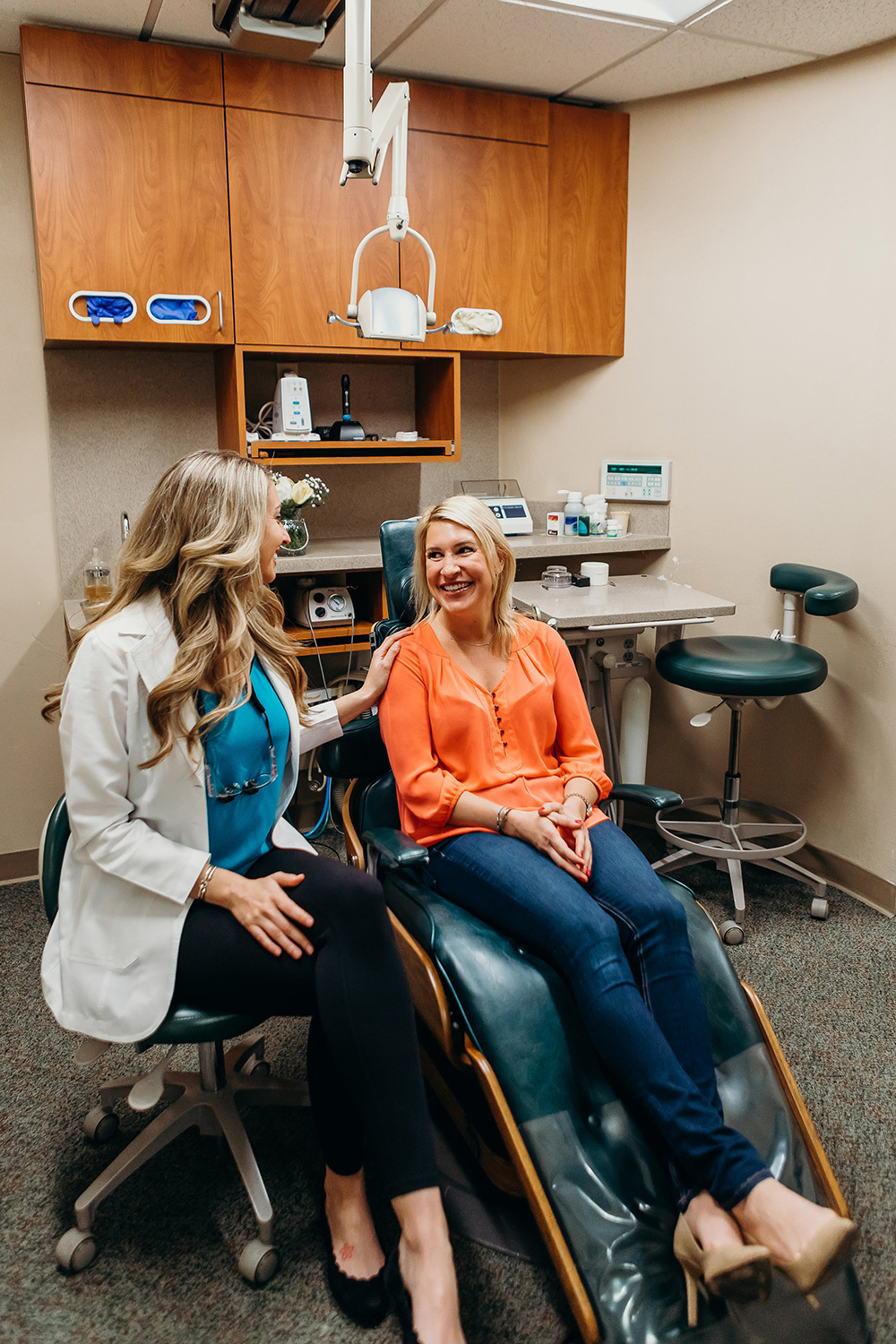TMJ Disorder Treatment in Scripps Ranch
 According to the American Dental Association, 15 percent of Americans experience chronic pain in the temporomandibular joint (TMJ), or the complex system of joints and muscles that makes it possible for you to open and close your mouth. TMJ pain can present as headaches, clicking or popping noises when opening the jaw or tenderness around the jaw.
According to the American Dental Association, 15 percent of Americans experience chronic pain in the temporomandibular joint (TMJ), or the complex system of joints and muscles that makes it possible for you to open and close your mouth. TMJ pain can present as headaches, clicking or popping noises when opening the jaw or tenderness around the jaw.
If you suffer from pain or tenderness around your jaw, or you cannot open or close your jaw completely, you should schedule an appointment with Dr. Jennifer Santoro. After a comprehensive evaluation, she will determine the cause of your discomfort and find a suitable solution.
Understanding the TMJ
The TMJ connects your lower jaw to your skull in front of your ears; you have one TMJ on either side of your jaw. The joints and muscles of the TMJ are what allow you to control your jaw movement, enabling you to chew, speak and smile. The TMJ is also responsible for helping move your lower jaw forward and backward, as well as side to side.
Your TMJ is very complex and combines a hinge action with a sliding motion. The bones of the joint are covered with cartilage and separated by a small disc that cushions the load and keeps the movements smooth. Any problems with this complicated system can lead to temporomandibular joint disorder, otherwise known as TMD.

Causes of TMD
For example, TMD can occur if the joint is damaged by a traumatic blow or another type of injury. Or, the cartilage covering the bones that interact with the joint can become damaged by arthritis. Alternatively, the small disc can become dislodged and shift out of the proper alignment. TMD typically causes significant pain and discomfort, as well as difficulty opening and closing the jaw.
You may be at a higher risk of developing problems with your TMJ if you grind or clench your teeth (especially unknowingly at night), have misaligned teeth or have existing arthritis.
TMD is generally diagnosed after a physical exam, during which Dr. Santoro will press on areas of your jaw to pinpoint the source of pain or tenderness as well as observe your jaw’s range of motion. X-rays are usually taken to get a detailed look at the bones that interact with the TMJ.
TMJ Disorder Treatment Options
Once a problem with the TMJ has been confirmed, treatment depends on the source of the problem.
Sometimes making small lifestyle tweaks like eating soft foods or applying heat packs to the jaw can ease some of the discomfort. Pain medication can also help alleviate discomfort. A mouth guard or night guard can protect the teeth and joint from chronic grinding or clenching. Relaxation techniques can help control tension in the jaw.
If misaligned teeth or an uneven bite are contributing to the TMJ pain, orthodontic treatment or reshaping some of the teeth may help. Physical therapy can help stretch and strengthen the jaw muscles.
In advanced cases of TMD, surgery or more involved procedures may be recommended.
Schedule a TMJ Consultation
If you are experiencing pain or tenderness in your jaw, or your jaw’s range of motion is limited, you should be screened for TMJ disorder. Please call or email Village Center Dentistry today to make an appointment with Dr. Santoro.


